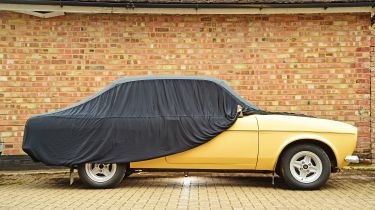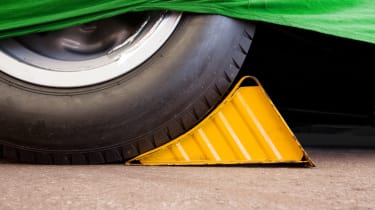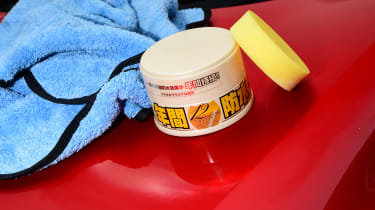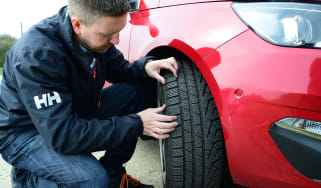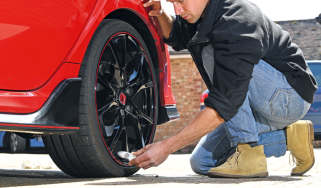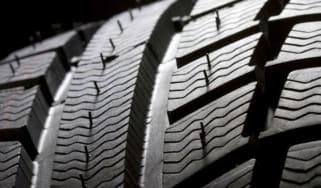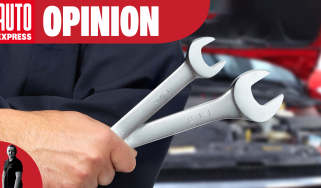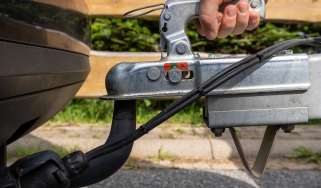Storing a car: how to lay up a car for the long term
Leaving a car unused for an extended period of time can be worrying, here’s how you can keep your car in top condition while it’s not in use.
If you know you won’t be using your car for a while it can be difficult to know what to do. Perhaps you’ve started working from home or want to look after your car during winter. Fear not, however, as we’ve teamed up with experts at Euro Car Parts, the AA and Nextbase in order to figure out the best ways to prepare your motor for what’s to come and minimise the risk of any problems developing.
How long can a car sit without being driven?
Before we start, let’s just clarify when we mean by storing your car. Under normal circumstances, experts recommend driving your car every two to three weeks. Using the car any less than this will increase the likelihood of problems flaring up when you plan to get back out on the road.
It’s perfectly possible that you could leave your car in a garage or parked outside for months with no problems but the longer you leave it, the greater the chance of issues developing and the more measures you should take to mitigate the risk. Our guide is all about reducing that risk of the worst coming to the worst when the time comes to put your car back on the road again.
Storing a car: 7 tips to protect your car for long term storage
1. Park up somewhere safe
2. Give your car a thorough clean
3. Apply a good quality car cover
4. Stay Secure
5. Perform some general maintenance
6. Invest in a smart charger
7. Catch up on admin
1. Park up somewhere safe
Not everyone has a lot of choice when it comes to where they park their car, particularly those who use street parking. However, if you do have some options, think about where it’s best to keep your car for a long period.
If you have a garage at your disposal, this is obviously the ideal location as it keeps your car protected from the elements, bird mess and any unsavoury characters who may pose a security threat.
If you are storing your car in a garage, ensure the space is well ventilated and open the car windows slightly. This will prevent moisture from building up inside the vehicle. Consider investing in a dehumidifier that will keep the air in the garage dry as well.
Of course, many of us will either be parking our cars on a driveway or a street. If this is the case, try and park on level ground in the open, away from any trees. If you have no choice but to park under a tree, it’s advisable to invest in a car cover.
2. Give your car a thorough clean
If your car is going to be sitting in front of your house not being used much, you should consider giving it a deep clean, especially if you have the spare time. That’s something we’ve produced a separate guide on. Don’t neglect the interior - you’ll be grateful for a clean driving zone when you plan to get back behind the wheel. The key areas to focus on are the steering wheel, dashboard, gear stick and door handles.
3. Invest in a good car cover
This will keep dust, debris and small animals away from your car. For extra safety, stuff clean rags into the exhaust pipe and any other areas creatures could nest.
If you’re storing your car outside on a driveway, make sure the cover is waterproof and tied securely so the winter storms won’t blow it away. Don’t cover the car with a plastic tarp as this could damage the paint – opt for a soft and stretchy cover that also allows any moisture to escape easily. Our guide to the best outdoor car covers explains more.
4. Stay secure
It’s important to keep your car secure while it’s laid up and there are a few precautions you can take to ensure this. Firstly, if your car is fitted with keyless entry, keep the key inside a Faraday pouch to prevent it falling victim to a relay attack by car thieves.
You may also wish to consider buying a steering wheel lock, which will act as a deterrent to thieves. There are also dash cams on the market that feature sentry modes - the presence of one of these could have a similar effect.
5. Perform some general maintenance
Fill up with fuel
If you can get to your nearest filling station, it’s good practice to brim your fuel tank with petrol or diesel before leaving your car for a long period of time. This will limit condensation in the fuel tank and help prevent rusting. Make sure you use the disposable gloves provided when touching the fuel pump. For long storage, we’d recommend adding a fuel preservative to make sure the fuel lines don’t get clogged.
Add anti-freeze
If you won’t be using your car over winter it’s a good idea to top up your car with anti-freeze – refill up to the levels and run the engine for a few minutes so the fluid gets circulated.
Check your oil
Old engine oil can contain contaminants that damage the engine if left to sit for long periods of time. Check your handbook for the manufacturer’s recommended oil. It’s also good to swap your oil and air filters at the same time.
Avoid rust
Any unpainted metal parts under your car can be painted with WD-40 to prevent rust. But avoid spraying belts, hoses and braking surfaces.
Check your tyres
Make sure your tyre pressures are correct. If you’re storing the car for several months, lift the vehicle to raise the tyres from the ground – this will prevent flat spots.
Run the engine
Every week or two you should look to start your car to prevent the battery running flat. If possible, go for a 15-minute drive but otherwise simply running the engine while stationary for 15 minutes should suffice.
Don’t use the handbrake
Wheel chocks are a good investment, particularly if you can’t avoid parking your car on an incline. Leaving the handbrake on is not a good idea as it risks fusing the brake pads to the discs. Checking your brake fluid is another good move and you should leave your car in gear.
Make a note of what you’ve done
Write down all the steps you’ve taken on a notepad, so when the time comes to restart your car in the spring, you won’t accidentally end up damaging it by, for example, forgetting to pull out the rag you’ve left in the exhaust.
6. Invest in a smart charger
A smart charger will keep the battery charged. Modern on-board computers can be affected by disconnecting the battery for too long. Start your car every few weeks and run the engine for 10 minutes.
7. Catch up on admin
If you find yourself with some extra spare time and want to be productive, it’s worth going over your car’s paperwork and making sure everything is up to date. Keep an eye on your insurance and VED road tax to avoid any unexpected fines and consider registering your car as SORN (Statutory Off Road Notification) if you know it’ll be off the road for some time.
Have any tips or tricks for laying up your car? Let us know in the comments below

